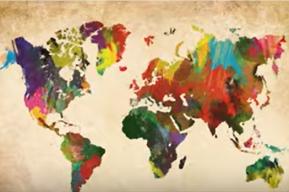Article
Norway Assumes Leadership of the Group of Friends for Education and Lifelong Learning

In outlining the priorities for Norway’s chairmanship, Ambassador Brattested underscored the critical role of the Group in bolstering international educational commitments, particularly in anticipation of the forthcoming Summit of the Future.
Education is essential for achieving all Sustainable Development Goals. We hope to work together in the Group of Friends to ensure quality education for all, both as a path to SDG progress and as the realization of a central human right.
Under Norway's leadership, the Group of Friends will focus on several key areas to enhance educational outcomes globally. A central aim is to ensure that every individual—regardless of gender, age, or background—has access to a quality education in a safe environment. This includes specific initiatives to promote equal educational opportunities so as to also fully empower women and girls.
The interconnection between education and other critical areas such as climate action is also a priority for Ambassador Brattested. She highlighted efforts to empower communities with the knowledge and tools necessary to address and mitigate climate challenges. Moreover, improving nutrition and educational outcomes through comprehensive school meal programs and promoting vocational training to boost employment and development are slated as integral parts of Norway’s agenda.
Ambassador Brattested also shared insights into Norway’s domestic educational strategies, which are designed to prepare students for a rapidly changing world. "Norway’s educational system, from the ground up, is built on a unified school system that ensures equality and adapts to meet diverse student needs," she explained. The system, backed by a robust national curriculum, emphasizes digital literacy as crucial for students’ academic success and future career prospects. As digital technologies continue to evolve, Norwegian schools are actively adapting to integrate these tools effectively, ensuring that education remains both contemporary and relevant.
With these initiatives, Norway aims to lead by example, demonstrating the impact of comprehensive and adaptive educational policies on global development. Under Ambassador Brattested’s guidance, the Group of Friends for Education and Lifelong Learning is set to make significant strides towards enhancing educational standards and achieving broader developmental goals.








